Orchestra Audition Guide for First-Timers: Essential Tips for Beginners

Table Of Contents:
- Orchestra Audition Guide for First-Timers: Essential Tips for Beginners
- Understanding the Orchestra Audition Process for First-Timers
- What to Expect as a Beginner Auditionee
- Navigating Different Audition Formats
- Decoding Audition Requirements and Guidelines
- Selecting the Right Repertoire for Your Instrument
- Recognizing the Role of Your Instrument in the Orchestra
- Preparing Effectively for Your First Orchestra Audition
- Crafting a Personalized Practice Schedule
- Mastering Required Pieces and Excerpts
- Enhancing Your Sight-Reading Skills
- Utilizing Recordings to Improve Performance
- Collaborating With Teachers and Mentors
- Building Confidence and Overcoming Audition Nerves
- Techniques for Managing Performance Anxiety
- Boosting Confidence With Mock Auditions
- Practicing Visualization for Successful Outcomes
- Incorporating Mindfulness and Relaxation Exercises
- Staying Motivated Throughout the Preparation Process
- Day-of-Audition Strategies for Success
- Assembling Your Audition Materials and Essentials
- Importance of Early Arrival and Warm-Up
- Demonstrating Professional Etiquette During the Audition
- Handling Unexpected Challenges Gracefully
- Maintaining Focus and Composure Under Pressure
- Learning and Growing From Your Audition Experience
- Reflecting Honestly on Your Performance
- Seeking and Applying Constructive Feedback
- Setting Goals for Continued Musical Development
- Preparing for Future Audition Opportunities
- Acknowledging and Celebrating Your Achievements
- Insider Tips to Excel in Orchestra Auditions
- Common Pitfalls Beginners Should Avoid
- Strategies to Stand Out to Audition Panels
- Building Connections Within the Music Community
- Accessing Resources for Skill Enhancement
- Inspiring Success Stories From Seasoned Musicians
- Conclusion
Are you gearing up for your first orchestra audition but feeling overwhelmed by the process? Many beginners struggle with nerves and uncertainty, especially when it comes to mastering their instrument, whether it be the tuba or any other. In this guide, you will find essential tips on effectively preparing for your audition, building confidence, and understanding the dynamics of the audition process. By the end, you’ll feel more equipped and knowledgeable, ready to showcase your skills—just like renowned musicians such as Douglas Yeo. Let’s transform your audition fears into a productive and rewarding experience.
Understanding the Orchestra Audition Process for First-Timers

As a first-time auditionee, it’s important to know what to expect during the orchestra audition process. You’ll navigate various audition formats and decoding the requirements set forth by organizations like the Boston Symphony Orchestra or the New York Philharmonic, Selecting the right repertoire for your instrument and understanding its role in an orchestra will also play a critical part in your success. These insights will guide you through your audition journey and help you feel prepared.
What to Expect as a Beginner Auditionee
As a beginner auditionee, you should prepare for a structured process that typically includes both a solo performance and possible orchestral excerpts. Expect the panel to pay close attention to your melody control, dynamics, and overall musicality during your audition. Being able to showcase your skills in a way that reflects your understanding of the orchestral environment is crucial for making a positive impression.
Your rehearsal routine will also play a significant role in your preparation. Take time to practice not only your chosen pieces but also orchestral excerpts relevant to the audition’s requirements. Familiarity with how your part interacts with other instruments can enhance your performance and increase your confidence on the day of the audition:
- Prepare your audition repertoire thoroughly.
- Practice orchestral excerpts regularly.
- Focus on melody and expression in your playing.
- Understand the role of your instrument within the orchestra.
- Attend mock auditions for practice and feedback.
Navigating Different Audition Formats
Navigating the orchestra audition process can vary significantly depending on the format used by the organization. Some orchestras may conduct auditions behind a screen, ensuring anonymity and reducing bias, while others may allow the panel to see you during your performance. Understanding the specific requirements is crucial, whether you play the trombone, violin, or cello, as each instrument may have particular expectations related to rhythm and technique that you should address in your audition preparation.
In addition to traditional live auditions, you may encounter recorded submissions or virtual auditions, especially in the current digital landscape. This means you’ll need to focus on both your playing and the quality of your recording. Pay attention to the acoustics of your practice space and consider how your sound, whether from a brass instrument or string instrument, translates in a recording. Preparing for these formats will enhance your chances of making a lasting impression and advancing your musical career.
Decoding Audition Requirements and Guidelines
Decoding audition requirements is crucial for your success as a musician. You’ll need to understand the specific elements that the panel will evaluate, including your dynamic range and technique. For instance, if you play the flute, select a concerto that demonstrates not only your technical skills but also your ability to convey emotion, as this will significantly impact the judges’ perception of your performance.
Make sure to carefully review the guidelines set by the orchestra you are auditioning for, as they may include details about required pieces, audition formats, and deadlines. Understanding these requirements will help you tailor your practice sessions effectively and minimize any last-minute surprises. By doing thorough research and preparation, you can approach your audition with confidence and clarity.
Selecting the Right Repertoire for Your Instrument
Selecting the right repertoire for your instrument is crucial in preparing for your orchestra audition. Keep in mind that the committee will be looking for pieces that showcase your technical skills and your ability to connect with the music. Choosing works that highlight your strengths while also demonstrating your understanding of chamber music can make a significant impact on the judges. Aim for a balance between well-known concert pieces and those that challenge you, showing both versatility and depth.
As you decide on your repertoire, consider consulting experienced musicians or mentors for tips. They can provide valuable insights into which pieces resonate well with audiences and are favored in auditions. Additionally, practicing your chosen repertoire extensively allows you to perform with confidence when it matters most. Make sure to select pieces that demonstrate your unique voice as a musician, ensuring you stand out during the audition process:
- Choose pieces that highlight your strengths.
- Include works that challenge your technical abilities.
- Consult experienced musicians for recommendations.
- Practice extensively to build confidence.
- Showcase your unique voice through your selections.
Recognizing the Role of Your Instrument in the Orchestra
Recognizing the role of your instrument in the orchestra is fundamental for your success as an auditionee. Each instrument contributes uniquely to the overall sound and dynamics of the ensemble, whether you are a violinist aiming to support the concertmaster‘s lead or a trombonist providing bass lines. Your preparation should include understanding how your instrument interacts with others, allowing you to navigate the audition process with confidence and avoid stage fright when it comes time to perform.
During your audition, remember that the judges will assess not only your technical ability but also how well you fit within an orchestra. Your memory of the music and familiarity with orchestral contexts will help you perform with assurance. It can be beneficial to listen to recordings of orchestral works featuring your instrument to grasp its interplay with the entire ensemble and develop a sound that stands out while complementing others:
- Identify your instrument’s unique role in the orchestra.
- Emphasize collaboration over competition in your preparation.
- Listen to recordings to understand sound interactions.
- Practice with an eye on how you fit into the larger ensemble.
- Use mock auditions to simulate the pressure of a real performance.
Now that you know what to expect from the audition process, it’s time to get ready. Preparing well can give you confidence and improve your chances of success.
Preparing Effectively for Your First Orchestra Audition

Crafting a personalized practice schedule is essential for developing discipline as you prepare for your first orchestra audition. Mastering required pieces and excerpts will enhance your intonation and overall performance. Improving your sight-reading skills and utilizing recordings can help you better understand classical music dynamics. Collaborating with teachers and mentors will provide valuable insights as you refine your approach to being part of a symphony.
Crafting a Personalized Practice Schedule
Crafting a personalized practice schedule is essential for your success as you prepare for your first orchestra audition. Start by evaluating the specific requirements of the orchestra you are auditioning for, such as the Cleveland Orchestra or the Chicago Symphony Orchestra, and tailor your practice sessions to focus on those elements. Designate time each week for technical exercises, repertoire, and orchestral excerpts, ensuring you cover all bases necessary for a well-rounded performance.
As a beginner, consider setting realistic daily or weekly goals that keep you motivated while you hone your skills. If you seek a community orchestra near you, practicing consistently will help you build the confidence needed for auditions. Remember to allow for flexibility in your schedule, adjusting as needed to accommodate different pieces or your progress, which will ultimately enhance your audition readiness and overall musicianship.
Mastering Required Pieces and Excerpts
Mastering required pieces and excerpts is foundational to your success in an orchestra audition. Focus on the specific pieces outlined in the audition guidelines, as they often highlight the skills and techniques the panel is assessing. Break down each piece into manageable sections, allowing you to practice effectively and accurately, ensuring you develop both confidence and proficiency in your performance.
Regularly integrating feedback into your practice routine will enhance your preparation significantly. You can schedule sessions with a teacher or experienced musician who can help highlight areas needing improvement, whether that involves technique, phrasing, or dynamics. This structured approach enables you to tackle your audition repertoire with a deeper understanding and refined execution, ensuring you make a strong impression on audition day:
- Focus on audition guidelines for required pieces.
- Break down pieces into manageable sections.
- Practice at a slow tempo before increasing speed.
- Incorporate regular feedback into your routine.
- Work on technique, phrasing, and dynamics.
Enhancing Your Sight-Reading Skills
Enhancing your sight-reading skills is crucial for your success in an orchestra audition. Regular practice, such as reading new pieces daily, helps you become more comfortable with quickly interpreting music on sight. Additionally, using a metronome can improve your rhythmic accuracy as you gradually increase the tempo, making you more confident in your abilities during the audition.
Engage with varied musical styles to broaden your sight-reading experience. Playing different genres exposes you to various notations and techniques that can be beneficial during your audition. Prioritizing sight-reading exercises and practicing with a partner can further develop your skills, ensuring you are well-prepared for the diverse music you might encounter in an orchestra setting.
Utilizing Recordings to Improve Performance
Utilizing recordings is an effective strategy to improve your performance for your first orchestra audition. By listening to recordings of renowned orchestra performances, you can gain insights into dynamics, ensemble playing, and phrasing specific to your instrument. Pay close attention to how the musicians communicate with one another and blend their sounds, as this will help you understand your role within the orchestra and how to enhance your own performance.
Additionally, recording yourself while practicing can provide valuable feedback. Listening to your own playing allows you to identify areas for improvement, whether it’s intonation, timing, or expression. This self-assessment can guide you in fine-tuning your audition repertoire and help you feel more prepared and confident when the audition day arrives.
Collaborating With Teachers and Mentors
Collaborating with teachers and mentors is essential for your preparation as you approach your first orchestra audition. Experienced musicians can offer guidance on repertoire selection, technique improvement, and effective practice routines. By engaging with these professionals, you can gain valuable insights tailored to your instrument and the specific expectations of the audition, which can significantly enhance your confidence and performance skills.
Additionally, consider scheduling regular feedback sessions with your mentor to address specific areas you’d like to improve. This focused approach allows you to refine your playing while receiving constructive criticism. Remember, the collaborative process not only helps you progress technically but also provides emotional support as you navigate the challenges of your audition preparation. Here are some key steps to keep in mind when working with your mentors:
- Set clear goals for your practice sessions.
- Seek feedback on specific areas of your performance.
- Discuss repertoire choices to ensure they align with audition expectations.
- Be open to constructive criticism to improve your skills.
- Establish a regular meeting schedule to track your progress.
You’ve prepared your music and practiced your notes. Next, let’s tackle the nerves that come with the stage, turning anxiety into strength.
Building Confidence and Overcoming Audition Nerves

Managing performance anxiety is crucial for a successful audition. You can boost your confidence through mock auditions, which simulate the audition environment. Practicing visualization techniques can help you imagine positive outcomes, while incorporating mindfulness and relaxation exercises reduces stress. Staying motivated throughout your preparation is essential, and these strategies will provide practical insights to help you perform at your best.
Techniques for Managing Performance Anxiety
To manage performance anxiety effectively, practice visualization techniques before your orchestra audition. Imagine yourself confidently stepping onto the stage, executing your pieces flawlessly, and receiving positive feedback from the judges. This mental rehearsal helps create a positive mindset and can significantly reduce feelings of nervousness as you prepare for your performance.
Another technique to combat anxiety is to incorporate deep breathing and mindfulness exercises into your routine. By taking a few moments to breathe deeply and focus on the present, you can calm your nerves and center your thoughts. Consistent practice of these techniques not only enhances your performance during auditions but also contributes to your overall growth as a musician, allowing you to approach challenges with greater composure.
Boosting Confidence With Mock Auditions
Participating in mock auditions can significantly boost your confidence as you prepare for your orchestra audition. By simulating the actual audition environment, you develop familiarity with the pressure and expectations that come with performing in front of a panel. This practice helps you refine your performance skills while also allowing you to receive constructive feedback from instructors or peers, enabling you to address any weaknesses before the real event.
Additionally, incorporating mock auditions into your preparation routine allows you to experiment with different performance styles and techniques. The ability to practice under similar conditions enhances your comfort level and reduces anxiety, ultimately helping you feel more composed on audition day. As you continue to engage in these rehearsals, you will build the resilience necessary to tackle nerves and perform your best when it counts the most.
Practicing Visualization for Successful Outcomes
Practicing visualization can significantly transform how you approach your orchestra audition. By spending a few minutes each day imagining yourself on stage, confidently performing your pieces, you can effectively prepare your mind for success. For example, picture the setting, the panel of judges, and even the emotions you will experience as you play. This mental imagery not only reduces anxiety but also reinforces your commitment to making a strong impression.
To maximize the effectiveness of this technique, incorporate it into your daily routine, especially before practice sessions. Visualizing a successful audition can help solidify your skills and boost your confidence levels as the performance date approaches. As you engage in this practice, remember that the more vividly you can envision your performance, the more likely you will feel calm and collected when it matters most.
Incorporating Mindfulness and Relaxation Exercises
Incorporating mindfulness and relaxation exercises into your audition preparation can significantly reduce anxiety and improve focus. Techniques such as deep breathing and progressive muscle relaxation help calm your mind and body, allowing you to approach your performance with a clearer mindset. Practicing these methods regularly can create a sense of routine that you can rely on during stressful moments, such as your audition day.
You might find it helpful to create a pre-audition routine that includes mindfulness exercises. For example, dedicate a few minutes before your practice or audition to close your eyes and focus on your breath. This approach not only centers your thoughts but also prepares you mentally, helping you develop a positive attitude about your abilities and performance. Implementing these techniques can be a game changer for your confidence and ease during auditions:
- Incorporate deep breathing exercises to calm the mind.
- Utilize progressive muscle relaxation to reduce tension.
- Create a pre-audition mindfulness routine for focus.
- Dedicate time to visualize success in your performance.
- Practice consistency to build confidence over time.
Staying Motivated Throughout the Preparation Process
Staying motivated during the orchestra audition preparation process can be challenging, especially for first-timers. Setting clear, achievable goals for your practice sessions can keep you focused and driven. For instance, aim to master specific excerpts or improve your sight-reading skills each week; this incremental progress will help you feel accomplished and maintain a positive outlook.
Additionally, surrounding yourself with supportive peers or mentors can significantly enhance your motivation. Engaging in group practice sessions or discussing your experiences with fellow musicians fosters a sense of community. It’s important to celebrate small victories along the way, as this recognition will reinforce your commitment to your goals and prepare you for the audition day:
- Set clear, achievable practice goals.
- Focus on mastering specific pieces or skills weekly.
- Engage with supportive peers or mentors.
- Participate in group practice sessions.
- Celebrate small victories to stay motivated.
You’ve faced the nerves and built your confidence. With the day of the audition here, it’s time to focus on strategies that will set you up for success.
Day-of-Audition Strategies for Success

As you prepare for your orchestra audition, focus on assembling your audition materials and essentials to ensure a smooth process. Arriving early and warming up appropriately sets the stage for your performance. Displaying professional etiquette, handling unexpected challenges with grace, and maintaining focus under pressure will significantly enhance your chances of success. Each of these strategies will contribute to a more confident and polished audition experience.
Assembling Your Audition Materials and Essentials
Before your orchestra audition, carefully assemble all necessary materials to ensure a smooth experience. Make sure you have your audition repertoire, orchestral excerpts, and any required sheet music neatly organized and readily accessible. This preparation not only helps demonstrate your professionalism but also allows you to focus solely on your performance rather than scrambling for materials at the last moment.
In addition to your music, bring essential items such as your instrument, any necessary accessories, a tuner, and a music stand if required. It’s also wise to pack a water bottle and a small snack to keep your energy levels up throughout the day. Being fully prepared with your materials and essentials will help you feel more confident, allowing you to concentrate on showcasing your skills during the audition.
Importance of Early Arrival and Warm-Up
Arriving early for your orchestra audition is essential for setting a positive tone before you even step onto the stage. This extra time allows you to acclimate to the environment, check your instrument, and mentally prepare yourself for the performance ahead. A calm and collected mindset is key to alleviating potential anxiety, ensuring you feel ready when it’s your turn to shine.
Warming up before your audition plays a critical role in your overall performance. Engaging in targeted warm-up exercises for your instrument will help you achieve optimal sound quality and technical precision. Use this time to focus on your breathing, intonation, and articulation, preparing both physically and mentally. Prioritizing a proper warm-up routine can make a significant difference in how you feel and perform during your audition:
- Plan to arrive early to acclimate to the audition space.
- Check your instrument and music materials upon arrival.
- Engage in focused warm-up exercises relevant to your instrument.
- Practice breathing techniques to enhance relaxation and concentration.
- Ensure you’re mentally prepared to deliver your best performance.
Demonstrating Professional Etiquette During the Audition
Demonstrating professional etiquette during your orchestra audition is crucial for making a positive impression. Arrive on time, as punctuality shows respect for the audition panel’s time and emphasizes your commitment to the process. Greet the judges with a polite nod or smile, and wait for their instructions before beginning your performance. This simple act of professionalism can set a collaborative tone and indicate that you are ready to be part of an ensemble.
Once you begin your audition, maintain focus and composure throughout your performance. Avoid disrupting the flow by making unnecessary comments or asking questions after your piece; instead, thank the panel for the opportunity and offer a respectful exit. Understanding the expectations of the audition environment will help you showcase not only your musical talent but also your ability to work professionally within a musical community. Consider these key elements of professional etiquette on audition day:
- Arrive on time to show respect for the panel.
- Greet the judges politely before your performance.
- Stay focused and composed during your audition.
- Avoid unnecessary comments after your performance.
- Thank the panel and exit respectfully.
Handling Unexpected Challenges Gracefully
On audition day, unexpected challenges may arise, such as last-minute schedule changes or technical issues with your instrument. It’s essential to approach these situations with composure and adaptability. If you find yourself in a stressful scenario, take a few deep breaths to center yourself and focus on what you can control. Maintaining a positive attitude will not only help you handle the moment but also convey professionalism to the audition panel.
Another effective strategy is to prepare for the possibility of unforeseen circumstances ahead of time. Familiarize yourself with your pieces so well that even a minor disruption won’t throw you off your performance. If something goes wrong, such as a slip in your playing, recover gracefully and continue with confidence. The panel appreciates resilience and poise, which may very well enhance your chances of making a positive impression during your orchestra audition.
Maintaining Focus and Composure Under Pressure
Maintaining focus and composure during your orchestra audition is vital for a successful performance. As nerves may take over, it’s important to implement practical strategies to keep yourself grounded. Focus on your breathing—taking deep, intentional breaths can help calm anxiety and clear your mind, allowing you to concentrate fully on the music. This simple technique can significantly enhance your overall performance and help you deliver your best audition.
You can also prepare mentally by visualizing a positive outcome before stepping onto the stage. Picture yourself playing confidently while engaging with the judges. By reinforcing a sense of assurance, you can better manage any unexpected distractions during your audition. Remember to prioritize your music and your unique expression throughout your performance:
- Utilize deep breathing techniques to calm your nerves.
- Visualize successful outcomes before your audition.
- Concentrate on your performance and engage with the music.
- Prioritize grounding techniques to enhance focus.
- Maintain a positive mindset and embrace the experience.
After the audition, the real journey begins. Each experience offers lessons, and it’s time to reflect and grow from what you’ve just faced.
Learning and Growing From Your Audition Experience

Reflect on your performance honestly to identify strengths and areas for improvement. Seek and apply constructive feedback to enhance your skills and understanding of the audition process. Set specific goals for continued musical development and prepare for future opportunities. Acknowledge and celebrate your achievements, as this positive reinforcement supports your growth as a musician.
Reflecting Honestly on Your Performance
Reflecting honestly on your performance after an orchestra audition is vital for your growth as a musician. Take the time to evaluate what went well and what areas need improvement. For instance, acknowledge moments where your technique shone through, while also identifying sections where you may have struggled or felt uncertain.
This honest reflection should inform your future practice sessions. If you notice specific challenges, such as rhythm accuracy or dynamics, focus on those in your next rehearsals. Seeking feedback from trusted mentors or peers can also provide additional insights, helping you develop a clearer understanding of your performance and how to enhance it moving forward.
Seeking and Applying Constructive Feedback
Seeking constructive feedback after your orchestra audition is essential for growth. Engaging with instructors or fellow musicians can provide valuable insights into areas you excelled in and aspects that may need improvement. Be open to this feedback; it can guide your practice sessions and help you refine your skills for future opportunities.
Applying the constructive feedback you receive is just as important. Take specific notes on the critiques you get and incorporate them into your next practice. For example, if a mentor suggests focusing on dynamics, dedicate time to explore this element in your upcoming rehearsals. By actively using feedback, you will steadily improve and build confidence in your abilities:
- Gather feedback from instructors or peers.
- Reflect on both strengths and weaknesses.
- Incorporate specific critiques into practice.
- Set targeted goals for skill enhancement.
- Monitor your progress and adjust accordingly.
Setting Goals for Continued Musical Development
Setting clear goals for your continued musical development is crucial after your orchestra audition experience. These goals serve as a roadmap, helping you identify specific skills you want to improve, whether it be mastering challenging pieces, enhancing your technical proficiency, or refining your interpretation of musical works. By breaking down your larger aspirations into smaller, achievable objectives, you can maintain focus and motivation as you advance in your musical journey.
For instance, if you noticed areas that needed improvement during your audition, such as dynamics or timing, you should set targeted goals to address these challenges. Commit to a practice schedule that incorporates exercises aimed at strengthening these aspects of your playing. Regularly evaluating your progress towards these goals allows you to track your growth and adjust your practice methods as needed, ensuring that you continually move forward as a musician.
Preparing for Future Audition Opportunities
As you prepare for future orchestra audition opportunities, it is essential to take a moment to reflect on your previous experiences. Analyze what worked well and where you can improve, and use this information to guide your practice. For instance, if you encountered difficulties with specific pieces, focus on those areas during your preparation for the next audition, ensuring you approach them with targeted exercises.
Additionally, maintaining an ongoing dialogue with mentors or peers can provide valuable insights into the audition process. Share your experiences and seek advice on repertoire choices or performance techniques. This collaboration not only enriches your understanding but also strengthens your network within the music community, opening doors for future auditions and opportunities as you progress in your musical journey.
Acknowledging and Celebrating Your Achievements
Acknowledging your achievements after an orchestra audition is essential for building confidence and motivation in your musical journey. Each step you take, whether mastering a difficult piece or successfully navigating the audition process, deserves recognition. Celebrate these accomplishments by keeping a journal of your progress, noting what you did well, and reflecting on how far you’ve come as a musician.
Celebration can take many forms, from sharing your experiences with peers to rewarding yourself with a small treat. This positive reinforcement helps to solidify your commitment to future auditions and personal growth. Acknowledging your achievements not only boosts your morale but also encourages ongoing development in your musical skills and abilities:
- Keep a journal of milestones and successes.
- Share your experiences with fellow musicians.
- Reward yourself for reaching personal goals.
- Reflect on your growth and progress regularly.
- Commit to continued development in your musical journey.
Every audition offers lessons, shaping your skills and confidence. Take your experience and prepare to learn specific strategies that will set you apart in future orchestra auditions.
Insider Tips to Excel in Orchestra Auditions

To excel in orchestra auditions, it’s essential to understand common pitfalls you should avoid. You’ll discover strategies to stand out to audition panels and the importance of building connections within the music community. Accessing resources for skill enhancement and learning from inspiring success stories of seasoned musicians will provide practical insights that elevate your audition experience. Each of these aspects plays a vital role in preparing you for success.
Common Pitfalls Beginners Should Avoid
A common pitfall for beginners is underestimating the importance of preparation. Failing to practice consistently or neglecting specific excerpts can lead to a lack of confidence on audition day. To avoid this, create a structured practice schedule that focuses on both your chosen pieces and any required orchestral excerpts. This approach will help you feel more prepared and enable you to present your best self to the audition panel.
Another issue is not fully understanding the audition guidelines provided by the orchestra. Incomplete knowledge of what is expected can lead to choosing unsuitable repertoire or unfamiliar techniques, which may affect your performance. Make sure to review the requirements thoroughly and align your practice with the expectations, ensuring that you demonstrate your skills effectively and fit within the orchestra’s overall sound.
Strategies to Stand Out to Audition Panels
To make a memorable impression on the audition panel, focus on showcasing your individual musicality while adhering to the audition requirements. Select repertoire that not only highlights your technical skills but also displays your ability to interpret pieces uniquely. When you bring your interpretation to life, it demonstrates passion and offers the panel a glimpse of how you will contribute to the orchestra’s overall sound.
Additionally, connect with the panel through your performance by engaging with them visually and musically. This approach involves making eye contact during the audition and conveying the emotion behind your music. These small yet impactful gestures can help you stand out among other candidates and convey your commitment to being an active and valuable member of the orchestra.
Building Connections Within the Music Community
Building connections within the music community is a key aspect of thriving as a musician. Attend local concerts, workshops, and masterclasses to meet other musicians and learn from their experiences. Networking with both peers and professionals can open doors for future opportunities, including learning about upcoming auditions and gaining insights into what different orchestras are looking for from auditionees.
Additionally, consider joining community orchestras or ensembles. These groups provide a supportive environment where you can collaborate with fellow musicians, gain performance experience, and develop your skills. Engaging with your local music community not only enhances your learning but also helps you establish valuable relationships that can support your growth and success in future orchestra auditions:
- Attend local concerts and workshops.
- Network with other musicians and professionals.
- Join community orchestras or ensembles for experience.
- Collaborate to enhance skill development.
- Utilize connections for future audition opportunities.
Accessing Resources for Skill Enhancement
Accessing a variety of resources can significantly enhance your skills as you prepare for your orchestra audition. Online platforms often offer tutorials and masterclasses tailored for each instrument, helping you refine your technique and artistry. Additionally, utilizing digital sheet music collections and instructional videos can aid in selecting repertoire that aligns with both your strengths and the audition expectations.
Engaging with local music organizations or community centers can also provide access to valuable resources. Many of these venues host workshops or provide mentorship programs that connect you with experienced musicians. Make the most of these opportunities to receive personalized feedback and gain insights into the typical requirements of orchestra auditions, ensuring you are better prepared for your performance:
- Explore online platforms for instrument-specific tutorials.
- Utilize digital resources for sheet music and practice videos.
- Participate in workshops at local music organizations.
- Seek mentorship from experienced musicians.
- Collaborate with peers for group practice and feedback.
Inspiring Success Stories From Seasoned Musicians
Many seasoned musicians faced challenges similar to those you may encounter during your first orchestra audition. For example, renowned flutist Claire Chase shared her struggles with performance anxiety. She emphasizes the importance of consistent practice and performing regularly to build confidence, which underscores the significant role preparation plays in your success.
Another inspiring story comes from cellist Alisa Weilerstein, who spoke about her experience with initial auditions. She had to navigate extensive repertoires and meticulous preparations, but her dedication and passion for music ultimately helped her stand out. This illustrates that perseverance and a personal connection to the music can make a lasting impression on audition panels:
- Embrace preparation as a key to success.
- Turn anxiety into an opportunity for growth.
- Build confidence through regular performance.
- Connect deeply with the selected repertoire.
- Stay persistent despite initial setbacks.
Conclusion
Preparing for your first orchestra audition is a significant step that requires careful planning and dedication. Understanding the audition process, selecting the right repertoire, and honing your skills through structured practice can greatly enhance your chances of success. Embracing feedback and building connections within the music community will further support your growth as a musician. By following these essential tips, you position yourself to not only excel in auditions but also to thrive within the vibrant world of orchestral music.
Find out about The People’s Orchestra HERE






